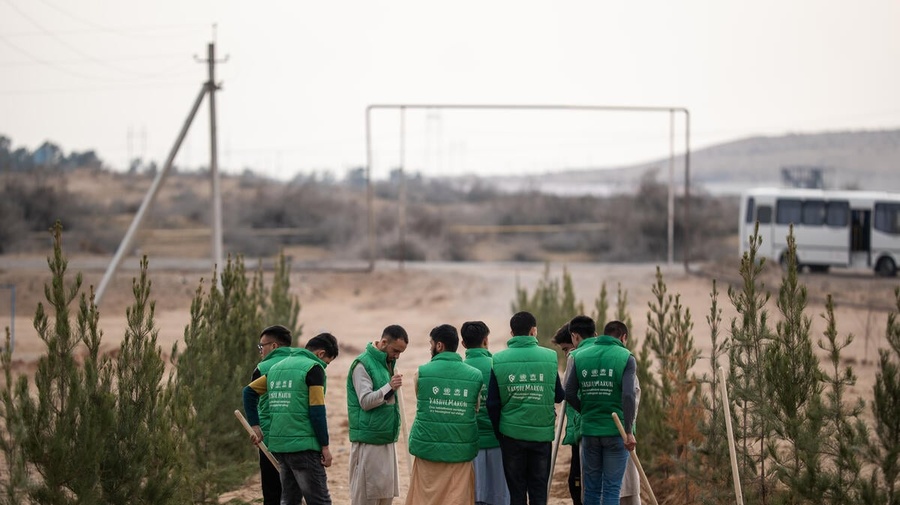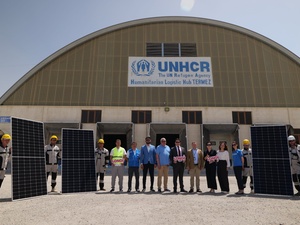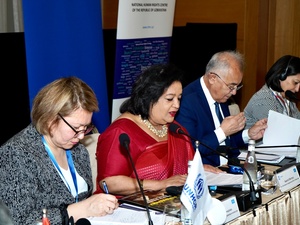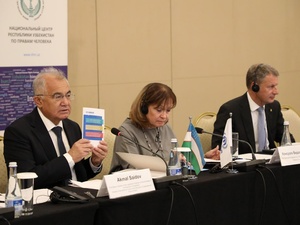Uzbekistan
Uzbekistan

Protecting People Forced to Flee
Uzbekistan has not yet acceded to the 1951 Convention relating to the Status of Refugees and its 1967 Protocol, and does not yet have a national asylum system. As such, forcibly displaced people in the country do not have access to socio-economic rights or services, including legal employment, healthcare, or social protection, and are not protected from being forcibly returned to danger. UNHCR welcomes Uzbekistan’s acceptance of 2018 and 2023 recommendations made under the Universal Periodic Review (UPR) in the Human Rights Council to ratify the Refugee Convention and its Protocol.
In support of the government’s efforts, UNHCR commissioned an Analytical Report which examines national legislation related to refugee issues and provides recommendations and follow-up measures to guide development of the national protection framework.
UNHCR remains ready to continue supporting the government to implement its UPR recommendations, establish a Refugee Law and asylum system in line with international standards, and allow forcibly displaced people in the country to legalise their stay and access due rights.
Reducing and Preventing Statelessness
In recent years, Uzbekistan has made great progress to reduce and prevent statelessness, including by ensuring universal birth registration in 2018, adopting progressive legislative reforms such as the Citizenship Law of 2020, and granting citizenship to over 90,000 stateless people.
In line with Uzbekistan’s 2018 Universal Periodic Review recommendations, UNHCR advocates for Uzbekistan to accede to the two UN Statelessness conventions, and further align national citizenship and statelessness laws with international standards.
UNHCR provides its expertise and support to the authorities to reduce, prevent, and end statelessness.
Preparing and responding to emergencies
Supported by the Government of Uzbekistan, in October 2021 UNHCR established a regional logistics hub within the Termez Cargo Centre, as part of its response to the Afghanistan emergency. Located 2km from the Uzbekistan-Afghanistan border, the hub has enabled UNHCR to rapidly replenish local stockpiles and be more agile in its humanitarian response, while reducing costs and risks associated with carrying large inventory in each country affected by the Afghanistan situation. With demonstrated capability of same day, onsite processing for shipments and deliveries to the region and beyond – including to Myanmar and Ukraine – in 2025, the hub was incorporated into UNHCR’s global network.
Read also: UNHCR integrates Termez hub in Uzbekistan into global stockpile network
Termez is UNHCR’s eighth global stockpile in the network which enables UNHCR to respond to emergencies anywhere in the world by delivering essential relief items to up to 1 million forcibly displaced people.
Working with partners
UNHCR partners with non-governmental organizations to protect and assist forcibly displaced people, asylum-seekers and stateless people in Uzbekistan.
UNHCR collaborates with State authorities, UN agencies, international organizations and other partners, to ensure refugees, asylum-seekers and stateless people are not left behind in Uzbekistan’s achievement of the Sustainable Development Goals.
Read the country factsheet to learn more about UNHCR’s work in Uzbekistan.




